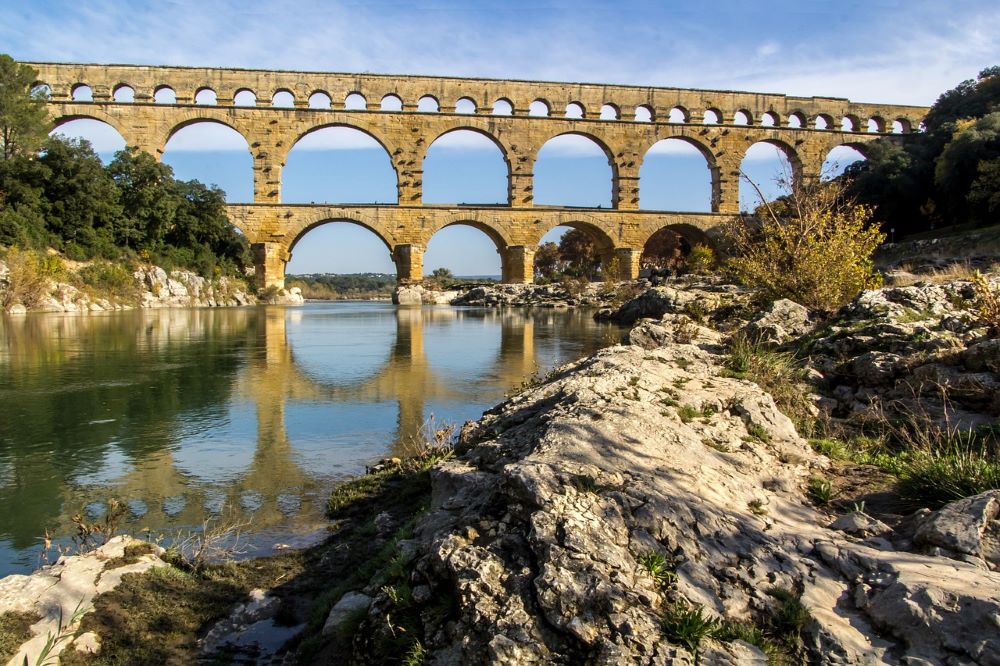
(Pixabay/igorelick)
When I entered the Society of the Sacred Heart, I didn’t know that "Sacred Heart" referred to centuries of thought and devotion to the heart of Jesus. I knew only that the charism of the sisters I met spoke to my heart and drew me in. They dedicated their lives to sharing the love of God with everyone, and I was hooked. As I learned more about the foundation of the Society, with its origins in the dark times of the French Revolution, I grew to believe, along with the Society, that love shared can transform the world. I also grew in my experience of the mystery of God's love and my own ability (and limitations) to share it with others.
In his new encyclical on the Sacred Heart, Dilexit nos, Pope Francis describes how St. Thérèse of Lisieux desired the love of Christ to fill her heart, so that she could then spread it out into the world and let it transform others. It was not enough for her to share her own love with others. She wanted to be a conduit, an instrument bringing God's own love into the world. She knew that the world always needs more love, more transformation, more kindness.
I can't think of a better way to live, especially in a world that seems so broken right now. In my own formation as a Religious of the Sacred Heart, I had to learn that my capacity to take on the burdens of others was greatly limited — I could only hand over their cares to God. The image that worked for me was that of an aqueduct: I had to allow the sorrow and pain of others to move through me to God because those burdens were too much for me to handle. And the reverse as well: While my love is good, it is tiny in comparison to God's infinity. If I can let God's love pass through me to others, it can transform everyone it encounters.
This November, love is needed more than ever, in our country and in our world. For the last few decades, our political system in the United States has been so divisive that a tiny percentage of voters tips the scales to elect the president of the United States. Whether I find myself on the winning or the losing side, my heart aches for the way people treat each other. We all lose when we allow our humanity to be so divided, and when — worse — we forget that even "they" are human, too. It honestly doesn't matter who "they" are: God loves them more than I can possibly imagine.
If I can let God's love pass through me to others, it can transform everyone it encounters.
Dilexit nos is a reminder of God's immense love for the world, a reminder that we are created in God's image and therefore we, too, are created to love. Pope Francis says:
In union with Christ, amid the ruins we have left in this world by our sins, we are called to build a new civilization of love. That is what it means to make reparation as the heart of Christ would have us do. Amid the devastation wrought by evil, the heart of Christ desires that we cooperate with him in restoring goodness and beauty to our world.
His words remind me of the call St. Francis of Assisi heard from Christ on the cross, to "rebuild my church, which is falling into ruin." If Francis of Assisi strove to place brick upon brick, and then to reinvigorate the local Christian community as well, how do we "build a new civilization of love" except by cooperating with God's love in our world, one act of love at a time?
But how? How do we demonstrate to God that we return love for love? Pope Francis draws devotion to the Sacred Heart into two areas of our lives: our interior spirit and our outward expressions of love to our neighbors. While, inwardly, we may be praising God with song (like St. Cecilia, whose feast day we celebrate today, Nov. 22), outward expressions of praise and love resound in our concrete activities. "Building a new civilization of love" cannot be accomplished without loving interactions with other people. Of course, the Gospels illuminate the way for us: We love God by feeding the hungry, clothing the naked, consoling those who are suffering … There are infinite ways to share the love of God with those around us.
In our world, maybe it can even be not doing something: not forwarding that email that contains unverified catastrophic warnings or that spreads paranoia about a political party or a group of people or an individual. Maybe it means ignoring hateful language that is directed at us, responding with kindness and gentleness rather than in anger. It could also be much harder: speaking up to let someone know that their words hurt, or defending the human rights of someone or a group who is being attacked. The opportunities to show God's love are endless. We need only open our eyes and call on the courage within our hearts to do something.
The election is over, and with it goes the hate-filled divisive advertising that called on each of us to see the other side as the enemy. We need to rebuild our culture now, so that we see ourselves as one human family. Half of the family is not our enemy. We are meant to be united in relationship and friendship with one another.
Advertisement
Building a new civilization of love is not just about rebuilding our world to reflect and spread God’s infinite love for all of creation. It’s also about finding our own fulfillment. Made in God's image and likeness (Genesis 1:26-27), we are only fulfilled when we share God's love with others. As Pope Francis puts it:
Whenever a person thinks, questions and reflects on his or her true identity, strives to understand the deeper questions of life and to seek God, or experiences the thrill of catching a glimpse of truth, it leads to the realization that our fulfilment as human beings is found in love. In loving, we come to know the purpose and goal of our existence in this world. Everything comes together in a state of coherence and harmony.
The challenge today, it seems to me, rests in setting aside the weapons of hatred and division, picking up instead the tools of love that actively build a new civilization. Trusting that God's love works through us, let's seek unity together.





